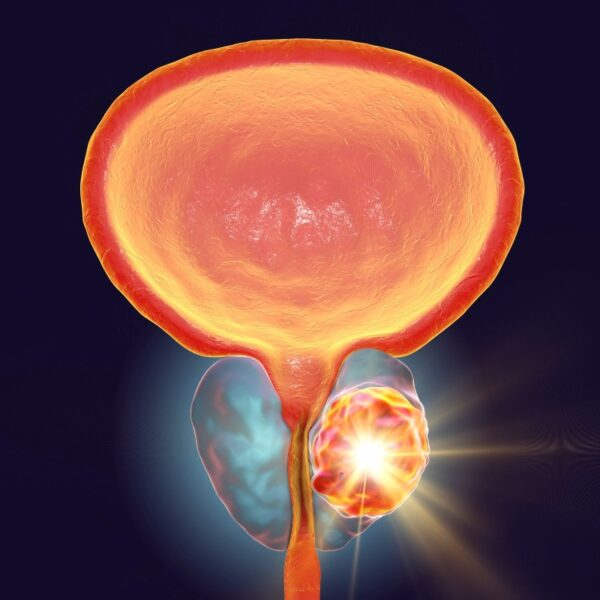BY: Jasmine Franklin
Published 2 months ago

September is Prostate Cancer Awareness Month. This month shines a light on an issue that affects millions of men and individuals assigned male at birth. Prostate cancer is the second most common cancer among men, yet many people know little about it. That’s why it’s essential to stay informed about the signs of prostate cancer and understand how the diagnosis process works.
What Is Prostate Cancer?

According to the Mayo Clinic, Prostate cancer develops when cells in the prostate gland grow uncontrollably. This small, walnut-sized gland, located below the bladder and in front of the rectum, produces seminal fluid that nourishes and transports sperm. Risk factors include age (particularly over 50), family history, obesity, and being of African descent.
View this post on Instagram
Though prostate cancer often grows slowly and may not cause noticeable symptoms in its early stages, more aggressive forms can spread to other parts of the body, especially the bones and lymph nodes. While prostate cancer is serious, early detection can dramatically improve outcomes.
The Different Types of Prostate Cancer
According to the American Cancer Society, most prostate cancers are adenocarcinomas, but some other types include:
- Adenocarcinoma: This is the most common type, forming in the gland cells that produce prostate fluid. It typically grows slowly but can spread if not caught early.
- Small cell carcinoma: This rare and aggressive form doesn’t produce PSA, making it harder to detect with standard tests. It grows and spreads quickly.
- Squamous cell carcinoma: Also rare, this cancer starts in the flat cells of the prostate. It’s more aggressive than adenocarcinoma and doesn’t typically raise PSA levels.
- Transitional cell carcinoma: This type begins in the urethra but can spread to the prostate. It’s more likely to impact the bladder than other forms of prostate cancer.
- Sarcoma: Extremely rare, sarcomas develop in the soft tissues of the prostate. They tend to be more aggressive; doctors usually diagnose them at advanced stages.
7 Signs of Prostate Cancer
Understanding the signs of prostate cancer can help you catch it before it progresses. While some people experience no symptoms at all, here are seven common signs:
- Frequent urination
- Difficulty starting or stopping urination
- Pain or burning during urination
- Blood in the urine or semen
- Erectile dysfunction
- Discomfort in the pelvic area
- Unexplained weight loss
It’s important to note that experiencing one or more of these signs doesn’t necessarily mean you have prostate cancer. Still, it’s worth seeing a healthcare professional to rule out serious concerns.
How Is Prostate Cancer Diagnosed?
View this post on Instagram
According to the CDC, if you or your doctor notice signs that could point to prostate cancer, the next step is getting a diagnosis. The most common test is the Prostate-Specific Antigen (PSA) test, which measures the levels of PSA, a protein produced by the prostate. Higher levels might indicate cancer, but conditions like benign prostatic hyperplasia (BPH) can also cause an increase. Doctors may also do a Digital Rectal Exam (DRE), where they check the prostate manually for any lumps or hard areas that could be a sign of cancer.
If the results suggest cancer, the next step is typically a biopsy, where doctors take a sample of prostate tissue to look for cancer cells. Sometimes, they may recommend MRI scans or other imaging tests to get a better look at the prostate and check if the cancer has spread.
If you’re experiencing any signs of prostate cancer, don’t hesitate to reach out to your healthcare provider. Awareness and early detection are the best tools to fight this disease. Stay informed, stay proactive, and use this month as a reminder to take charge of your health—because your body deserves it.
Have you done your yearly check-up? Let’s chat below.









